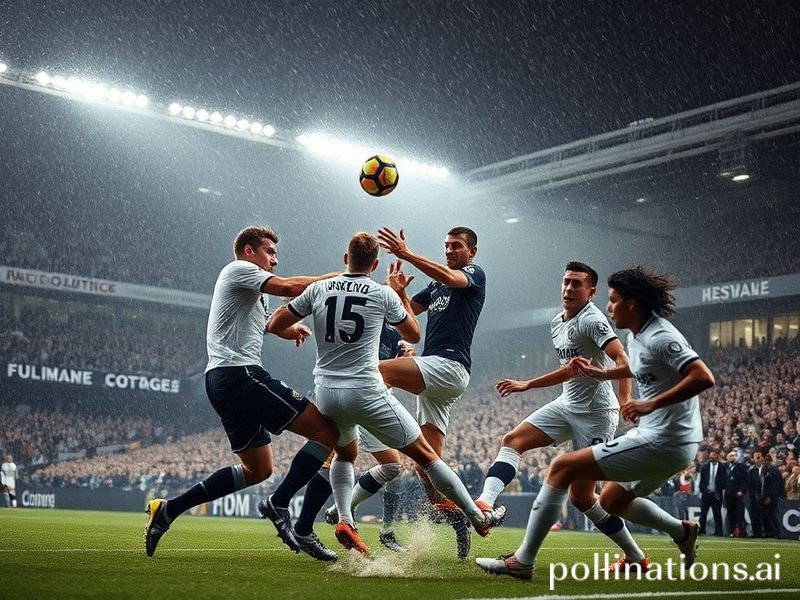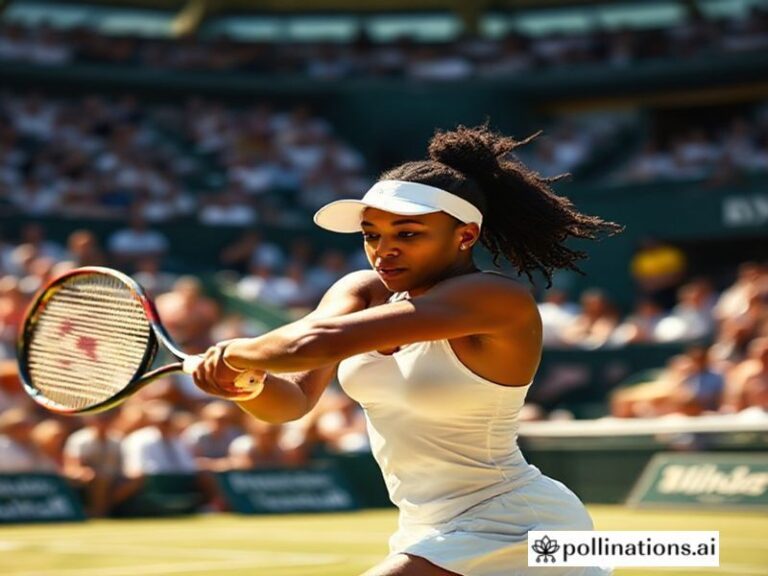Fulham vs Leeds: A Global Audience Binge-Watches Late-Stage Football Capitalism
The World Watches Two Second-Tier Londoners Argue Over a Ball: Fulham vs Leeds United as a Parable for Late-Stage Capitalism
By the time the floodlights flickered on at Craven Cottage, satellites were already relaying the scene to betting dens in Manila, expat pubs in Dubai, and that one basement in Montevideo where a Leeds-supporting orthodontist insists on calling the sport “soccer” just to spite everyone. On paper it was merely a Championship play-off semifinal—Fulham vs Leeds United, first leg—but in the grand tapestry of human folly it was something grander: two once-proud clubs reduced to auditioning for the right to re-enter the English Premier League’s money tornado, a cyclone that pays you in exposure and then bills you for the privilege.
The geopolitical back-story writes itself. Leeds, a city that once exported entire civilizations of cloth to the world, now exports only Kalvin Phillips GIFs and lingering memories of Champions League nights so distant they may as well be sepia postcards from the Austro-Hungarian Empire. Fulham, meanwhile, is a quaint riverside parish whose stadium still looks like a Victorian botanical garden someone forgot to lock, and whose owner once tried to buy the moon on the off chance it could be converted into riverfront condos. Both outfits are owned, at least in part, by Americans who discovered football the way one discovers a rash: confusing, mildly painful, but apparently monetizable.
So the planet tuned in, more out of morbid curiosity than love. In Lagos a barrister placed a micro-bet via mobile money; in Seoul an insomniac graduate student streamed the match at 3 a.m. because the algorithm whispered “relegation six-pointer” and the algorithm never lies, except when it does. Everywhere, humans sought meaning in 22 millionaires booting an inflated polyurethane sphere while wearing adverts for online casinos and noodle brands. Camus would have found it bleak; the rest of us simply updated our fantasy teams.
On the pitch, Leeds started with the manic energy of a hedge fund that’s just heard the Fed might cut rates. They pressed, they harried, they pinged hopeful diagonals toward a striker whose haircut alone could destabilize small currencies. Fulham responded with the languid sophistication of someone who’s read Proust but still can’t remember where they left their wallet. Half-chances ricocheted like poorly coded NFTs—valuable to someone, somewhere, for reasons no one can quite articulate.
Then came the goal: a Leeds corner, a glancing header, the net rippling with the inevitability of a Twitter pile-on. The away end exploded in joy so pure it could power a small Baltic state. Back in West Yorkshire, living rooms emitted a collective roar that startled the neighborhood cats, who promptly unionized. Fulham fans, meanwhile, performed that peculiar English ritual of pretending not to be hurt while queueing for £7 pints in plastic cups—a masterclass in stoic alcoholism that could surely be exported as soft power.
Second half: more drama, VAR interventions timed with Swiss precision to ruin any narrative momentum, and finally a Fulham equalizer that felt less like redemption than an awkward apology. 2-1 on the night, tie delicately poised, like civilization itself, on the edge of something either glorious or merely lucrative. The commentators declared it “a classic,” which is code for “nobody kept a clean sheet and the highlight reel will age poorly.”
And what does it all mean, globally speaking? Perhaps nothing. Perhaps everything. In an era when wheat futures and artillery shells share the same supply chain, watching two English clubs squabble over promotion is both absurd and weirdly comforting—proof that humans still find time for ritualized tribal warfare even as the ice caps perform their own relegation battle. The winner will ascend to the Premier League, land a TV deal fat enough to fund a small lunar colony, and immediately begin planning how not to get relegated again. The loser will console itself by selling the naming rights to its stadium’s toilets.
Either way, the satellites will keep relaying, the algorithms keep nudging, and we—the international confederacy of the terminally distracted—will keep watching. Because somewhere amid the commerce and choreography, a ball crossed a line, strangers hugged, and for 90-odd minutes the world’s other crises politely waited their turn. That, dear reader, is both the tragedy and the miracle of the modern game.







